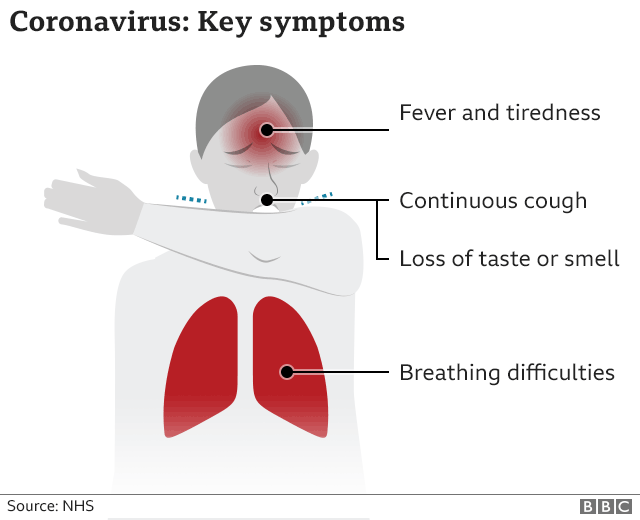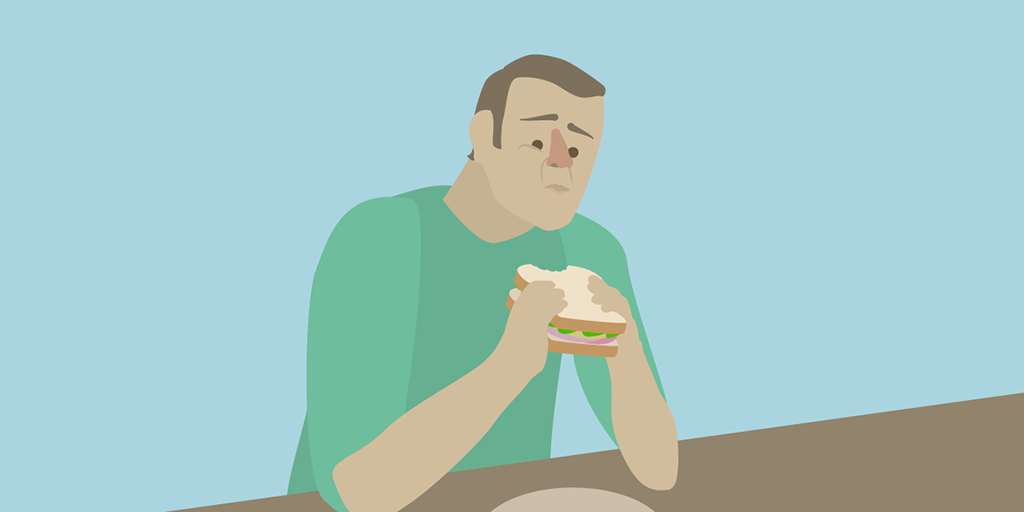Seven months ago Fromm instantly lost her sense of smell and taste from the coronavirus which lasted for several months. Loss of smell which also leads to a loss of taste is common in respiratory viruses.
 Coronavirus Massive Effect Of Smell And Taste Lost To Virus Bbc News
Coronavirus Massive Effect Of Smell And Taste Lost To Virus Bbc News
In fact experiencing a loss of smell can greatly impact your sense of taste.

Loss of taste and smell. Some of the best natural remedies for loss of taste and smell senses include. If youre experiencing loss of taste and smell consult your doctor. You can also be born with a smell disorder usually because of a faulty gene.
But we believe the primary cause particularly for people with extended or permanent loss of smell. No sense of taste. Loss of smell and taste is a symptom of Covid-19 but patients infected with coronaviruses that cause the common cold can also lose taste and smell because of congestion.
The loss of the senses of taste and smell can sometimes be the only. How can a virus cause smell and taste loss. For some people normally pleasant tastes or smells may become unpleasant.
I wasnt alone in my thoughtsthe sentiment is shared by professionals in the nutrition and mental health industry as well. Roughly 35 to 70 of COVID patients report a loss of those senses. One possibility is that people with upper respiratory infections often have congestion drainage and other nasal symptoms that can block odors ability to reach the smell nerve which sits at the top of the nasal cavity.
How the loss of taste and smell can impact ones relationship with food. For a small number of people however these senses have. No sense of smell.
Much of the pleasure that you can take in food and drink is from smell Pavia Rosati of New York City a travel and lifestyle. Sometimes loss of taste and smell contributes to depression. As cases continue to rise more people will be affected by loss of smell known as anosmia and loss of taste known as ageusia.
Anosmia is the medical term for a. If youre a COVID-19 long hauler it likely does. The loss of the senses of smell and taste are the most common smell and taste disorders.
It is estimated that 95 of taste disorders are caused by damage to the ability to smell rather than to loss of taste. Bobby Tajudeen Rush University Medical Centers. Loss of taste and smell also might tempt you to use excess salt or sugar on your food to enhance the taste which could be a problem if you have high blood pressure or diabetes.
The loss of taste and smell can be classified as a discomfiting but largely painless side-effect but I felt its absence deep inside nonetheless like a physical loss. While many people report a loss of taste as a primary symptom its a loss of smell thats often a worse culprit since most of what we perceive as taste is actually a combination of smell and taste. TORONTO -- While loss of smell andor taste has affected approximately 80 per cent of COVID-19 patients most recover within a few weeks.
Sometimes a cause for the loss of smell cannot be found. The symptoms can be alarming especially when they persist well after other symptoms of the virus have dissipated. Typically post-viral smell loss includes a runny nose or nasal symptoms.
There are many different causes of smell and taste problems. Smell is what gives food and drink their variety said Harold McGee a food and wine writer who authored the book Nose Dive. What can cause a loss of taste or smell.
Now shes seeing Dr. Luckily there are ways to regain your smell and taste. The sense of smell significantly affects how a person tastes food.
This is not the case with COVID where the smell and taste loss arrive before any respiratory symptoms. Its estimated that 95 percent of the time when theres a loss of taste its associated with a reduced sense of smell. The very first and possibly one of the best home remedies to restore loss of taste and smell is castor oil.
1 These two symptoms are also some of the earliest and most commonly reported indicators of COVID-19 and may better predict positivity. Temporary loss of smell anosmia and taste ageusia are two symptoms that can differentiate COVID-19 from the common cold and flu according to a new statement by the US Surgeon General Jerome Adams MD MPH. Smell loss during and after a respiratory virus isnt new.
Taste is a more complex sense that involves the tongue throat roof of the mouth and nose. No idea what is going on. The most common causes of temporary loss are colds flu and sinus problems.
This happens in about 1 in 5 people. The active compound in the castor oil ricinoleic acid has been found to have amazing benefits in reducing the risks of infection. Other disorders include the reduced ability to smell or taste specific substances that are sweet sour bitter or salty.
COVID is a unique type of respiratory virus with quick access to the nervous system. Understanding the loss of taste and smell. People could experience a partial or full loss of these senses.
The loss of taste and smell can be an early sign of COVID-19.

